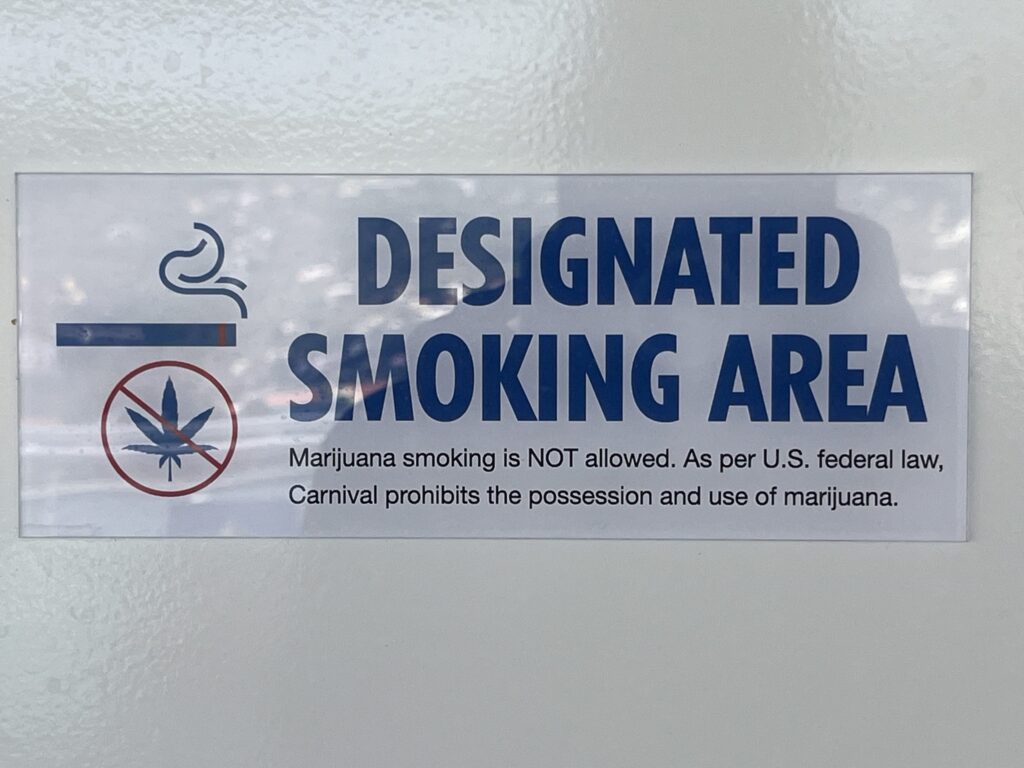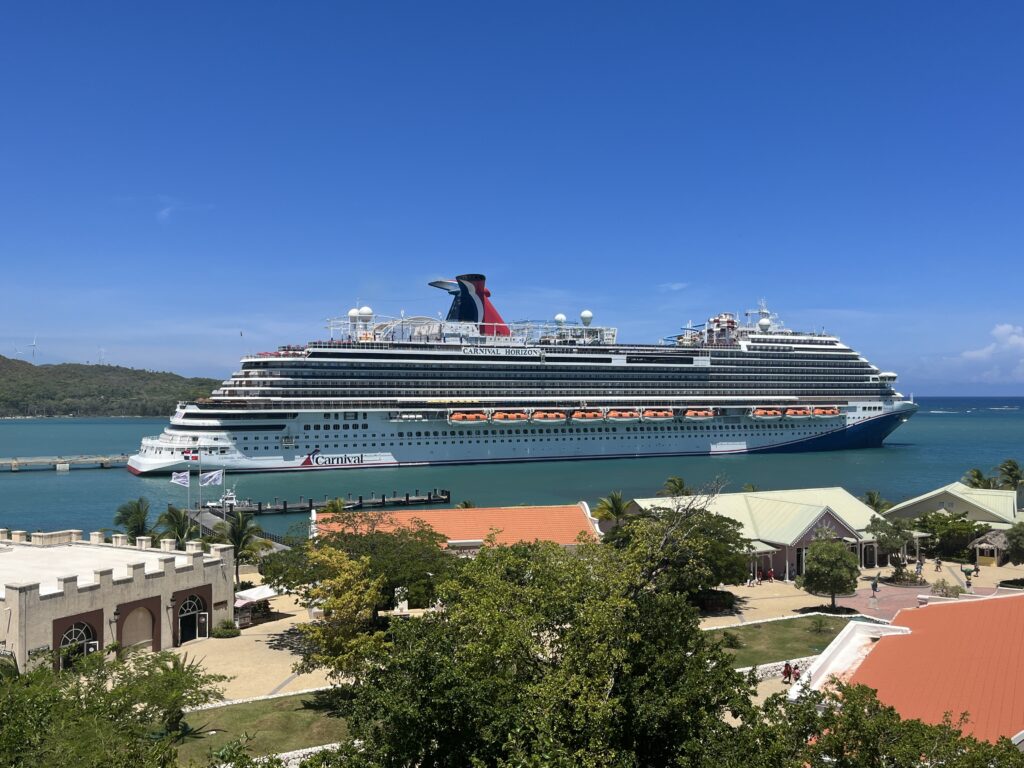Whispers of a “CBD Cruise Exile” have cast a hazy cloud over the world of vacationers, leaving many wondering: just how serious is Carnival Cruise Line about its no-weed policy, and can a seemingly harmless CBD gummy get you permanently blacklisted?
To untangle this sticky situation, we need to first navigate the complex legal landscape surrounding marijuana and its derivatives. As explored in my recent article, “Is Marijuana Legal on a Cruise Ship: Navigating the High Seas with Weed,” the answer rests on a legal tightrope. Cruise ships waltz between international waters and various ports, each with its own stance on cannabis. While some regions embrace legalization, others hold fast to strict anti-drug laws. This creates a legal labyrinth for cruise lines, who often choose a blanket ban on anything resembling marijuana, regardless of its legal status at specific ports.

Enter the case of Melinda Van Veldhuizen, a Dallas nurse practitioner and chiropractor whose alleged possession of CBD gummies on a Carnival Horizon cruise landed her a lifetime ban. While details remain murky, reports suggest security flagged her luggage after X-rays revealed metal nail clippers (another item prohibited by Carnival). A subsequent search unearthed a sealed pack of CBD gummies. This seemingly harmless stash ignited a legal firestorm, sparking questions about Carnival’s policy, the legality of CBD, and the fate of passengers caught in the crossfire.

It’s crucial to remember that “legal” doesn’t translate to “cruise-worthy.” Even if your CBD gummies boast zero THC, the psychoactive component of marijuana, Carnival’s zero-tolerance policy applies to anything resembling the plant, on board and in port. This policy aims to avoid legal tangles with international laws and protect their family-friendly image.
So, even trace amounts of THC, however miniscule, can trigger positive drug tests and further complicate matters. Remember, Van Veldhuizen’s specific gummy content remains unknown, highlighting the importance of extreme caution.
Now, let’s dive into the murky waters of federal law. While hemp-derived CBD oil with less than 0.3% THC is legal at the federal level, the FDA hasn’t approved it for any medical use, leaving its status as a supplement or medication ambiguous. This ambiguity translates into confusion for cruisers and potential discrepancies in how different cruise lines interpret federal regulations.
Ultimately, the responsibility rests on the passenger’s shoulders. Before setting sail, thoroughly research the chosen cruise line’s stance on CBD and any related derivatives. If unsure, err on the side of caution and leave questionable items ashore. Remember, cruise lines have broad discretion over who sails on their ships, and violating their policies, even unintentionally, can lead to unpleasant consequences.
So, did a CBD gummy deserve a lifetime ban? While the specifics remain shrouded in mystery, this incident serves as a stark reminder of the legal complexities surrounding cannabis and its derivatives. It’s a cautionary tale for cruisers, urging them to navigate the choppy waters of cruise line cannabis policies with clear eyes and cautious packing. After all, a relaxing CBD gummy isn’t worth risking a dream vacation and a lifetime ban from your favorite cruise line.
Tips for Cruisers in Doubt About CBD Gummies:
- Contact the cruise line directly: Don’t hesitate to reach out to the cruise line with any questions about specific items you wish to bring. They’re the ultimate authority on what’s allowed onboard.
- Embrace alternative relaxation methods: Explore options like meditation, yoga, or spa treatments for relaxation. Cruise lines usually offer a variety of wellness options that won’t raise eyebrows.
- Remember, it’s not just about CBD: The same caution applies to any drug or medication, prescription or over-the-counter. Check the cruise line’s policies and ensure you have proper documentation for any necessary medications.
What Exactly is CBD, and How Does it Compare to Marijuana?
CBD, or cannabidiol, is a natural compound found in the cannabis plant, along with its more famous cousin, THC (tetrahydrocannabinol). While both come from the same source, they have distinct differences in their effects and legal status.
Weed, primarily used recreationally, contains high levels of THC, the psychoactive ingredient responsible for the “high” associated with cannabis use. THC interacts with cannabinoid receptors in the brain, altering mood, perception, and coordination. Weed is still federally illegal in the US, though legalization for recreational or medical use is gaining traction in many states.
CBD, however, doesn’t have that “high” effect. It interacts with the endocannabinoid system differently than THC, focusing on potential anti-inflammatory, pain-relieving, and anxiety-reducing properties. It’s being studied for its possible benefits in managing various conditions, from epilepsy to chronic pain. Importantly, CBD derived from hemp (a cannabis plant with less than 0.3% THC) is legal at the federal level in the US, though regulations still vary in different states.
So, to summarize, weed is associated with the psychoactive “high” due to THC, while CBD focuses on potential therapeutic benefits without the mind-altering effects. The legal landscape also differs, with CBD from hemp generally having looser restrictions than weed. Remember, these are just broad strokes, and it’s crucial to research specific laws and regulations before making any decisions.
By prioritizing awareness and responsible packing, you can ensure a smooth and enjoyable cruise experience, free from the stress of potential drug-related complications. Bon voyage!
Please note that the information provided in this article is for informational purposes only and should not be construed as legal advice. Always consult with the cruise line and relevant authorities regarding specific regulations and restrictions.
